Barbara Thomas, 56.
Barbara Thomas, 56, moved to Martin County in 1994 to take care of her ailing father when her mother died. Then her father died, followed by her sister and brother-in-law. In 2007, it was her turn to need care.
Thomas found herself in the emergency room with a perforated ulcer. She underwent surgery and was released. A week later, “the whole thing just popped open and they had to rush me back in,” she said.
Thomas developed sepsis and spent the next month in the hospital, racking up bills that she couldn’t afford. She and her husband were getting by on his Social Security checks.
Fortunately, that’s when she learned about VIM Clinic and qualified to become a patient.
Thomas needed a second surgery in 2011 after failing to heal properly. She also has chronic obstructive pulmonary disease, or COPD, and gets her inhalers through the clinic. More recently, she was diagnosed with Wegener’s granulomatosis, a rare disorder commonly known as Wegener’s disease.
It’s so rare, in fact, that long-time VIM volunteer, Dr. Lewis Karas, a retired gastroenterologist and internal medicine physician, had never seen a case before. He referred Thomas to Rheumatology Associates for the appropriate specialist care.
“I’ve never seen a case of Wegener’s before, in all my years of practicing medicine,” he said. “This is the type of disease that you really want to have an expert in the field, and the field is arthritis and autoimmune diseases.”
Thomas has a family history of rheumatoid arthritis, which is part of the genetic predisposition to Wegener’s, Karas said. The disorder causes inflammation of the blood vessels, which in turn, restricts blood flow to the organs, causing damage.
There is no known cause and no known cure. Treatment can essentially put the disease into remission. But without treatment, Thomas would likely die from kidney failure within a year.
Thomas had hoped to get back into the workforce after her sister died last year. It’s important to her to be self-sustaining, and not a “bother” to people.
“There are so many people who need the help, and there’s people out there who judge them, like they don’t want to work. That’s not the case. There’s a lot of people out there that need the help, but they can’t afford it. They’re afraid to come and ask for the help, or they’re embarrassed,” she said, blinking back tears.
She would rather have work and be able to buy insurance, she said, “but God had other plans. It didn’t work out.”
Even if she could get private insurance, Thomas doesn’t think she’d ever be as comfortable as she is at VIM Clinic.
“Everyone there at the clinic,” she says, listing off the names of VIM staff and volunteers, “they know what you’re going through and they take the time to listen. They’re like friends.”
Thomas appreciates the “old school” approach at VIM Clinic. While acknowledging that everyone needs to make a living, she took it hard when one physician told her she wouldn’t get the care she needed without insurance.
“I told him there’s a good group of doctors here, and it’s called Volunteers in Medicine,” she said. “They’re from the old school, where they care about the people first.”

